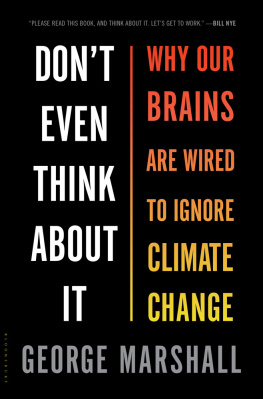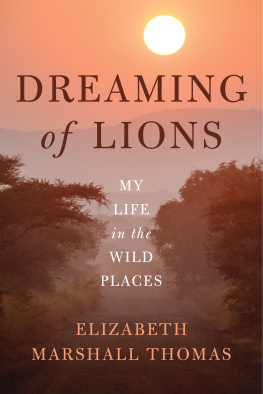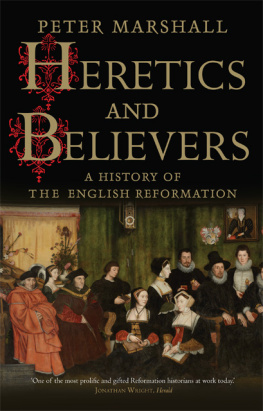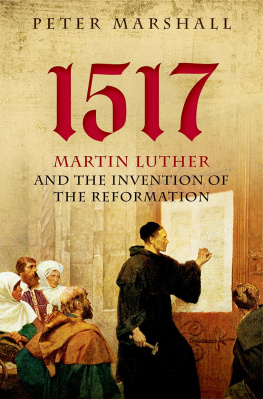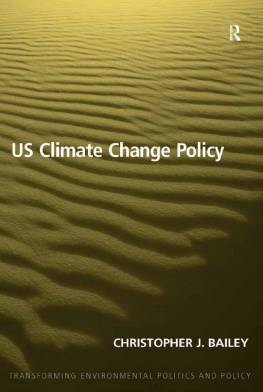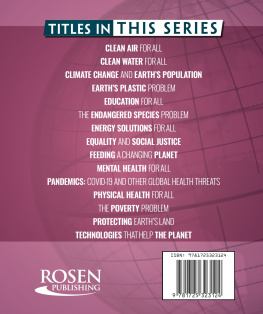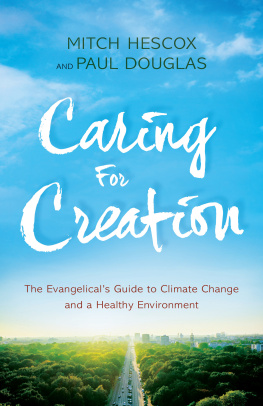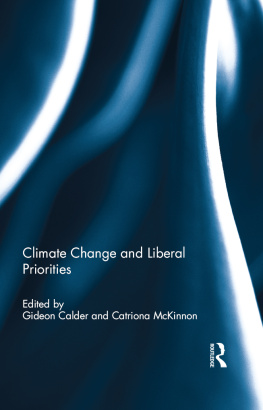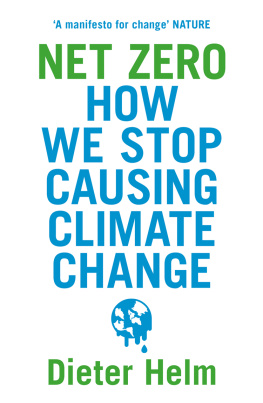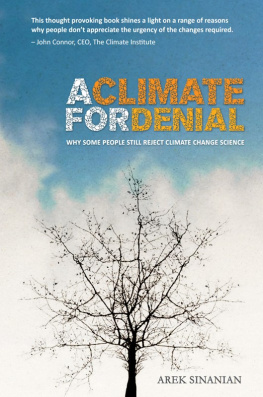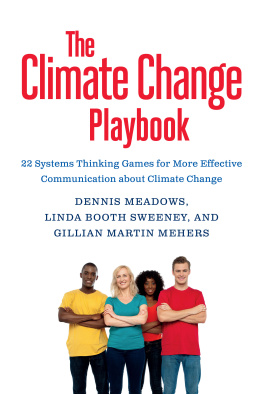Firstly I would like to thank everyone who gave up their time to be interviewed and so freely shared their insights and experience with me. You all influenced this book even if I have not been able to quote all of you directly. I hope that I have reflected or reported your views accurately and fairly:
Abie Philbin-Bowman, Adam Hochschild, Alya Haq, Andrew Simms, Annie Leonard, Anthony Leiserowitz, Ara Norenzayan, Atossa Soltani, Betsy Taylor, Bill Blakemore, Bill McKibben, Bob Buzzanco, Bob Inglis, Bruce Dobkowski, Bryan George, Cara Pike, Chris Rapley, Clive Hamilton, Courtney St. John, Cyndi Wright, Dan Gilbert, Dan Kahan, Daniel Kahneman, David Buckland, David Hone, David Reiner, Debra Medina and the members of the Texan Tea Party, Deyan Sudjic, Dina Long, Eamon Ryan, Erin Biviano, Erin Taylor, Eviatar Zerubavel, Frank Bain, Frank Maisano, Frederic Luskin, Gavin Schmidt, George Loewenstein, Gill Ereaut, Ginny Pickering, James Hansen, Jennifer Morgan, Jennifer Walker, Jeremy Leggett, Jim Riccio, Joanna Macy, Joe Romm, Joel Hunter, John Adams, John Ashton, John Charmley, Juliet Schor, Kalee Kreider, Kert Davies, Kevin Anderson, Kevin Wall, Keya Chatterjee, Kirk Johnson, Laura Storm, Marc Morano, Martin Bursik, Matthew Nisbet, Michael Brune, Michael Dobkowski, Michael Mann, Michael Marx, Michael Salvato, Myron Ebell, Oliver Bernstein, Oliver Tickell, Patrick Reinsborough, Paul Slovic, Peter Kuper, Renee Lertzman, Richard Mueller, Ross Gelbspan, Sabine Marx, Sally Bingham, Sam Kazman, Sandy Dunlop, Stephen Lea, Steve Kretzmann, Ted Nordhaus, Thomas Schelling, Tim Nicholson, Tom Athanasiou, Vinay Gupta, Wendy Escobar.
I am immensely grateful for the support of so many others in the course of this project and my travelspeople who have advised me on contacts and contracts, shared ideas and insights, put me up, and put up with me! Thank you again for your generosity.
Alastair McIntosh, Amara Levy-Moore, Andy Croft, Andy Revkin, Annie Leonard, Beth Conover, Bill Day, Brian Tokar, Bruce Rich, Bruce Stanley, Caroline Crumpacker and Roberto Rossi, Caspar Henderson, Chris Shaw, Claire Roberts, Clare Ellis, Cliff Jordan, Daphne Wysham, David Partner, David Rothenberg, Edward C. Chang, Erik Fyfe, Eve Levy, Fred Pearce, the Garrison Institute, Garson OToole, Geri and the staff of the Great Oak Caf, Graham Lawton, Heart Phoenix, James Marriott, Jennifer Callahan, Jenny Hok, Jo Hamilton, Joanna Kempner, John Fousek, John Passacantando, John Seed, Jonathan Bunt, Jonathan Spottiswoode, Karen Hadden, Kari Norgaard, Katherine Hayhoe, Kathy Geraghty-Acosta, Lafcadio Cortesi, Lawrence Culver, Lisa Orr and Matt Harris, Lorraine Whitmarsh, Louisa Terrell, Lynn Englum, Mark and Jan Scott, Mark Haddon, Mark Levene, Mark Lynas, Matthew Jacobson, Michael Corballis, Mick West, Mike Roselle, Nick Lunch, Nick Pidgeon, Nicola Baird and Pete May, Olga Roberts, Paddy McCully, Pam Wellner and Eugene Dickey, Peter Lipman, Peter Winters, Rebecca Henderson, Randy Hayes, Richard Cizik, Richard Harris, Richard Hering, Robert Wilkinson, Ryan Rittenhouse, Saffron ONeill, Sally Weintrobe, Sara Smith, Sarah Woods, Scott Parkin, John Houghton, Stephan Lewandowsky, Stuart Capstick, Susanne Breitkopf, Ted Glicke, The Authors Guild, Tom Crompton, Tom Smitty Smith, Tzeporah Berman, Zoe Broughton, Zoe Leviston.
My greatest thanks are due to the friends who peer-reviewed my rambling drafts and corrected my mistakes: George Monbiot, Hugh Warwick, Patrick Anderson, Paul Chatterton, Roman Krznaric, Vivienne Simon, and my colleagues at COIN, especially Adam Corner, Olga Roberts, and Jamie Clarke. Above all, though, my thanks are due to Dan Miller and Jay Griffiths, who provided meticulous line-by-line comments and proposed detailed changes. If this book is enjoyable to read it is a credit to their skills and knowledge.
Finally a big thank you to Nancy Miller at Bloomsbury who took a chance on an unknown English writer to write a book for the U.S. market on a subject that no one wants to read about: now thats brave publishing. And, always, my thanks and love to my ever supportive wife, Annie, and my children, Elsa and Ned, with my apologies for being a stressed and grumpy father.
George Marshall is the co-founder of the Climate Outreach and Information Network, the first British nonprofit organization to specialize in public communication around climate change. COINs international reputation is built on its commitment to reaching new audiences, including its pioneering communications work with trade unions, human rights organizations, and political conservatives.
Over the past twenty-five years George has worked at all levels of environmental and social rights campaigning: from direct action protests to governmental policy consultancies, with senior positions at Greenpeace USA and the Rainforest Foundation in between.
He is also the author of Carbon Detox (www.carbondetox.org), a slow-selling book offering fresh ways to think about personal action to climate change, and he blogs every so often at www.climatedenial.org. He lives in mid-Wales with his family and several thousand comic books.
Why We Are So Poorly Evolved to Deal with Climate Change
The idea that our evolutionary psychology makes it hard for us to deal with climate change is widespread. Paleoanthropologist Ian Tattersall in the coda to his book The Masters of the Planet: The Search for Our Human Origins reflects that we are notably bad at assessing risk. Inside our skulls are fish, reptile and shrew brains. This, he says, is why we can ignore climate change and think that we wont have to face its consequences. Professor Paul Ehrlich, the outspoken population biologist at Stanford University, argues that we cannot deal with climate change because the forces of genetic and cultural selection were not creating brains capable of looking generations ahead.
Evolutionary psychology is much contested, debated, and fought over on political and ideological grounds. Climate deniers argue that it underestimates the speed of evolution and that constant environmental and climate changes during evolutionary history have actually left us remarkably well adapted and prepared for the changes of the modern world.
Daniel Gilbert, a professor of psychology at Harvard, disagrees. He tells me that climate change is a threat that our evolved brains are uniquely unsuited to do a damned thing about. Gilbert has given this some thought: He is an expert, and now a bestselling author, on the psychology of happiness, and he has the kind of free-roving hyperactive mind that is fascinated by everything.
Gilbert argues that our long psychological evolution has prepared us to respond strongly to four key triggers that he neatly summarizes with the acronym PAIN:
Personal : Our brains are most highly attuned to identifying friends, enemies, defectors, and human agency.
Abrupt : We are most sensitive to sudden relative changes and tend to ignore slow-moving threats.
Immoral : We respond to things that we find to be indecent, impious, repulsive, or disgusting.
Now : Our ability to look into the future is one of our most stunning abilities, but, he says, it is still in the early stages of R&D.
As Gilbert sees it, the problem with climate change is that it doesnt trigger any of these. Of the four, he is most inclined to emphasize the lack of Abrupt and Now, which are things that even a rabbit understands. But he would not underestimate the importance of Immoral. While we recognize that climate change is bad, it does not make us feel noxious or disgraced. He adds, If global warming were caused by eating puppies, millions of Americans would be massing in the streets.
Unless, I suggest, Americans already eat puppies. The taboo is socially constructed, and one could readily imagine an alternative culture in which, following the lead of the hungry pilgrim settlers, it was roast puppy that had become the centerpiece of the Thanksgiving table.
Next page
